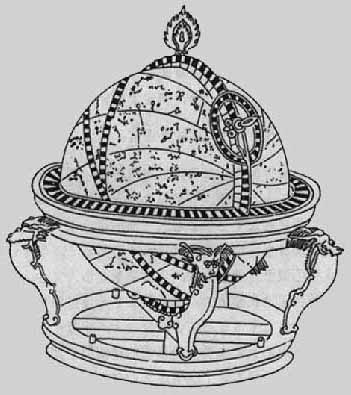|
2015
Yibian 2.0
2022
Yibian 3.0
2025
Yibian Intl. 3.5
????
Yibian Intl. ?.?
Empowered by the Renaissance, the West entered the first Industrial Revolution in the late 18th and early 19th centuries, achieving leaps in politics, economy, and technology. This stood in stark contrast to the politically corrupt and stagnant East at the time. By the latter half of the 19th century, the weakened and corrupt East had become a target for exploitation and oppression by modern powers. Continuous defeats in wars, territorial concessions, reparations, and unequal treaties not only drained the nation's resources but also stripped the East of its confidence. In the first half of the 20th century, the West dominated the world in politics, economy, military, and culture. The East, on the other hand, seemed to have suffered a severe illness, losing its vitality and stumbling along, generally losing confidence in its own culture. In the latter half of the 20th century, after nearly half a century of struggle and recovery, the East finally regained its footing and began to walk its own path again. By the early 21st century, the East had largely restored its vitality, enabling deep self-reflection, facing its past, rebuilding confidence, and embracing the future. As the East lost confidence in its own culture, TCM also faced multiple attempts at abolition. However, like its mother culture, TCM is enduring, resilient, and truly capable of protecting lives. Despite constant irrational suppression, TCM survived. With the restoration of the East's vitality, confidence in its own culture gradually reemerged. At the same time, because TCM indeed has "inexplicable" therapeutic effects, it has gradually regained acceptance among the people. However, the new East has evolved, and TCM must also evolve. It can no longer rely on the "Ah Q spirit" or the attitude of "close enough." It must strive for greater refinement, as stagnation means regression.
The millennia-old TCM tradition indeed contains many outdated and inappropriate elements. What we value and what remains enduring are its theoretical essences. Modern medicine has its own brilliance but also many immature aspects. Rationally speaking, whether from the perspective of practitioners or patients, integrating the strengths of both TCM and modern medicine while eliminating their weaknesses or outdated aspects is the wisest choice. However, the differences between Chinese and modern medicine are not merely about strengths and weaknesses; they fundamentally differ in their theoretical perspectives and adaptive scales: TCM is macroscopic, while modern medicine is microscopic. It is like observing the Earth from a satellite orbit versus observing it from the Earth's surface - both are looking at the Earth, but their perspectives are entirely different. Modern medicine, with only two to three hundred years of history, is constantly evolving. Its approach to treating diseases focuses on quickly masking symptoms, and its theories are still in their infancy, seeing only parts rather than the whole. Thus, it cannot cure diseases fundamentally, and patients often require long-term medication to control symptoms. However, its research methods, experimental spirit, diagnostic instruments, and surgical techniques are beyond the reach of TCM. TCM, with its macroscopic theories, has been passed down for thousands of years, offering simple, affordable, and effective treatments that can cure complex diseases. Yet, it is filled with many unverified hypotheses and, compared to modern medicine, lacks detail and technical sophistication in many areas. Therefore, whether in TCM or modern medicine, practitioners must discard prejudices and humbly learn and understand. The giant dragon has awakened and will regain confidence in its own culture, and its ancient and profound culture will spread across the globe. TCM, having stagnated for a century, must strive for excellence, utilizing contemporary technology and knowledge to reinterpret its principles and make them more applicable to modern times. If this is achieved, TCM will undoubtedly usher in its golden age, protecting and nurturing lives! Author of this site, Dr. Shen (Shen Yaozi), on February 27, 2022. |


 In the author's view, the theoretical model of TCM far surpasses modern medicine in certain aspects. If modern medicine is a child, TCM is an adult. The principles of TCM could easily earn hundreds of Nobel Prizes in Medicine. Unfortunately, the syntax of TCM classics is too archaic, and the lack of confidence inherited from previous dynasties has led to almost zero emphasis on TCM culture in modern Eastern basic education. It is no wonder that modern people find it difficult to understand their own TCM.
In the author's view, the theoretical model of TCM far surpasses modern medicine in certain aspects. If modern medicine is a child, TCM is an adult. The principles of TCM could easily earn hundreds of Nobel Prizes in Medicine. Unfortunately, the syntax of TCM classics is too archaic, and the lack of confidence inherited from previous dynasties has led to almost zero emphasis on TCM culture in modern Eastern basic education. It is no wonder that modern people find it difficult to understand their own TCM.